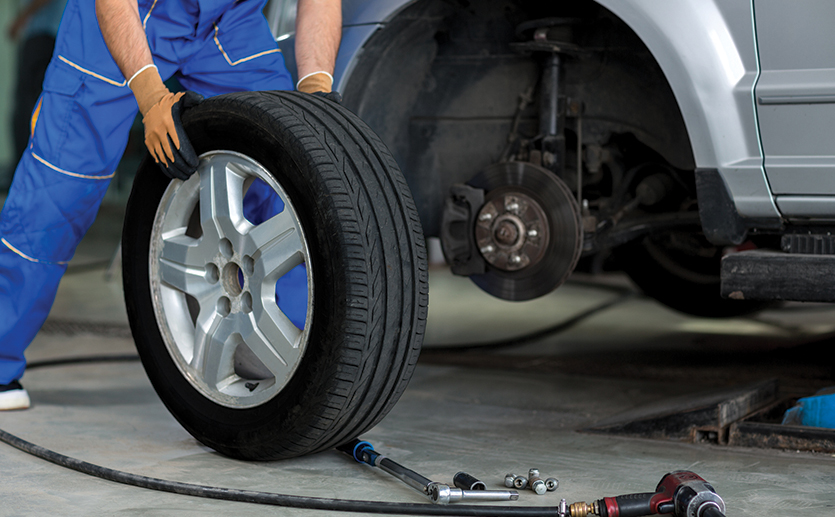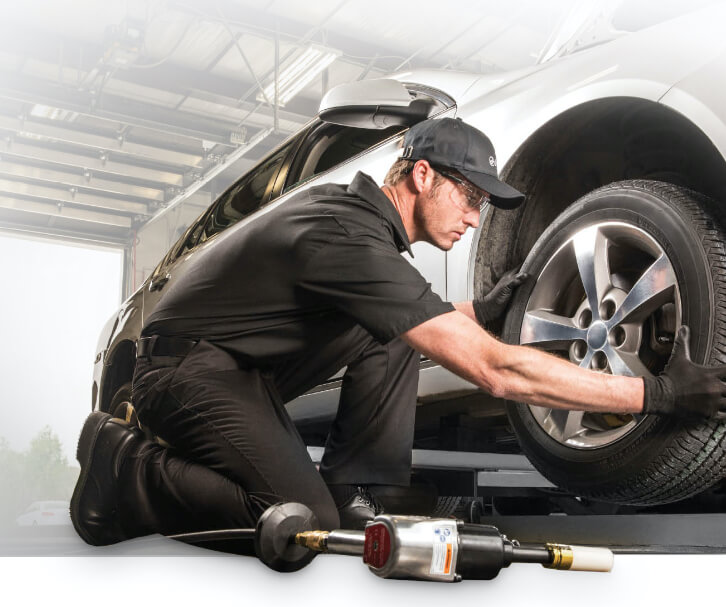Morris Tires: Your Partner for Specialist GMC Tires Service
Morris Tires: Your Partner for Specialist GMC Tires Service
Blog Article
Tire Solution: The Influence of Weather
When it involves making certain optimum performance and security when traveling, understanding the impact of weather problems on tire service is essential. From scorching warmth to icy roads, each weather component can dramatically influence tire functionality and general driving experience. By delving into the impacts of differing climate condition on tires, vehicle drivers can obtain useful insights that might improve their automobile's efficiency and long life. In this discussion, we will certainly check out the detailed partnership between climate problems and tire service, clarifying the relevance of weather-specific tire maintenance techniques and considerations.
Warmth and Tire Performance
When exposed to heats, tires experience changes in efficiency that can significantly impact automobile security and handling. The warmth generated from prolonged driving or warm weather condition problems triggers the tire rubber to soften, bring about reduced step life and boosted wear. As the rubber comes to be softer, the tire's grasp when traveling diminishes, affecting stopping ranges and general grip. In severe situations, extreme heat can even trigger tire blowouts, posing an extreme safety and security danger to the lorry and its occupants.

Cold Weather Effects
Winter problems can have a considerable impact on tire performance and safety and security. As temperatures drop, tire rubber can harden, leading to reduced grip on icy or snow-covered roadways. In cool weather condition, tires may also lose air pressure extra swiftly, which can affect dealing with and gas performance. Additionally, cold temperature levels can cause tire sidewalls to stiffen, enhancing the threat of damage from pits or various other roadway threats.
To minimize the impacts of winter on tires, it is essential to regularly inspect tire pressure and inflate them to the maker's recommended levels. Making use of winter months or all-season tires designed for cold weather problems can likewise boost traction and grip on icy or snowy roadways. Proper tire upkeep, consisting of routine evaluations for wear and damages, becomes much more critical throughout cooler months to make sure optimal performance and safety and security.
Rainy Conditions Effect
During rainy problems, tire performance and security can be considerably influenced by the wet road surfaces and lowered visibility. The walk pattern of tires plays a vital function in preserving grip on damp roadways. Tires with worn-out treads are much more prone to hydroplaning, where a layer of water accumulates between the road and the tire surface area, resulting in loss of traction. To battle this, chauffeurs ought to regularly examine their tires for appropriate walk deepness and consider purchasing tires specifically created for damp conditions.
Additionally, rainy weather condition can additionally decrease exposure, making it challenging for vehicle drivers to see the road ahead clearly (GMC Tire Service). In such conditions, it is vital to change driving speeds accordingly and preserve a morris tires risk-free complying with range to permit for abrupt quits. Effectively inflated tires can additionally assist in maintaining control on damp roadways by offering much better handling and grasp
Snow and Tire Security
Snow-covered roadways posture one-of-a-kind obstacles for vehicle drivers, highlighting the relevance of appropriate tire selection and upkeep. When driving in snowy conditions, having the right tires can make a considerable distinction in safety and performance. Winter tires are created with unique rubber compounds and step patterns to give far better traction on snow and ice compared to all-season tires. The deeper footsteps and sipes of wintertime tires help hold the road better, decreasing the threat of gliding and slipping.

It is essential to follow manufacturer instructions when setting up and utilizing tire chains to avoid damage to the tires and car. By picking the ideal tires, preserving correct inflation, and taking into consideration added traction aids like tire chains, chauffeurs can improve their safety when navigating snow-covered roadways.
Weather-Related Tire Maintenance
When encountered with numerous weather condition conditions, proper tire maintenance ends up being a critical aspect of lorry security and performance. Weather-related tire upkeep Related Site incorporates a variety of methods aimed at guaranteeing optimal tire feature and durability in various weather condition scenarios. One key facet of weather-related tire upkeep is tire pressure policy. Rising and fall temperatures can create tire stress to differ, influencing grip and fuel effectiveness. On a regular basis examining and adjusting tire pressure according to maker recommendations is vital for safe driving in changing weather. In addition, tire tread deepness plays a significant role in taking care of various climate elements. Tires with ample step depth give much better hold on damp or icy roads, decreasing the danger of hydroplaning or skidding. When step wear reaches a certain depth is important for preserving grip and stability in negative climate, evaluating tire tread frequently and replacing tires. By focusing on weather-related tire upkeep, vehicle drivers can enhance safety, enhance automobile performance, and lengthen the life-span of their tires.
Final Thought
In final thought, climate conditions have a considerable influence on tire performance and security. From heat impacting tire stress and put on to chilly weather reducing traction, it is important to this content think about the weather when keeping and utilizing tires.
In this conversation, we will check out the complex relationship in between weather condition conditions and tire solution, dropping light on the significance of weather-specific tire maintenance techniques and factors to consider.

Report this page